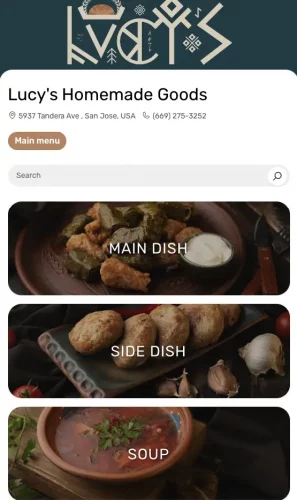Mastering Restaurant Management: Essential Tips for Success in the Modern Age
Effective Restaurant Management Tips
In today’s competitive restaurant industry, staying ahead requires innovative strategies and consistent effort. Here are comprehensive tips to help you manage your restaurant effectively, with a particular focus on modern trends like QR code menus.
1. Embrace Technology with QR Code Menus
A significant trend in the restaurant industry is the adoption of QR code menu. This technology allows customers to access your menu digitally via their smartphones, reducing physical contact and enhancing convenience. Implementing QR code menus can streamline the ordering process, enable real-time menu updates, and reduce printing costs. This tech-savvy approach not only improves the customer experience but also aligns with current health and safety standards.

2. Develop a Strategic Menu
Your menu is more than just a list of dishes; it is a crucial marketing tool. It should reflect your restaurant’s identity and cater to your target audience’s preferences. With a QR code menu, you can easily update offerings to include seasonal items, specials, and accommodate dietary restrictions. Regularly analyzing sales data can help you determine which items are most popular and profitable, allowing for strategic menu engineering to maximize revenue.
3. Focus on Staff Training and Retention
Your staff plays a vital role in delivering exceptional service and maintaining high standards. Invest in comprehensive training programs to ensure your team is well-prepared to meet customer expectations. Regular training sessions can cover new menu items, service protocols, and the use of technology such as POS systems. Additionally, fostering a positive work environment and recognizing employee achievements can enhance job satisfaction and reduce turnover rates (ZoomShift) (Perfect Venue).
4. Enhance Customer Experience
From the moment customers enter your restaurant, their experience should be seamless and enjoyable. This includes everything from efficient seating arrangements to the quality of food and service. Pay attention to feedback and be proactive in addressing any issues. Personalized service, where staff remembers regular customers’ preferences, can significantly boost customer loyalty .
5. Leverage Online Presence and Marketing
A strong online presence is essential in today’s digital age. Ensure your restaurant has an attractive, user-friendly website that includes features like online ordering and reservations. Utilize social media platforms to engage with your audience, share updates, and promote special events or new menu items. Encouraging customers to leave positive reviews on platforms like Google, Yelp, and TripAdvisor can also enhance your restaurant’s reputation and attract new patrons

6. Implement Efficient Operational Practices
Operational efficiency is key to running a successful restaurant. Use technology to streamline operations, such as inventory management software to track supplies and reduce waste. Effective scheduling ensures you have the right amount of staff during peak times without overstaffing during slower periods. Regularly review and optimize processes to improve efficiency and reduce costs (ZoomShift) (FoodChow).
7. Maintain Flexibility and Adaptability
The restaurant industry is ever-evolving, with trends and customer preferences constantly changing. Stay adaptable by regularly reviewing your business strategies and being open to change. This might involve updating your menu based on seasonal trends, adopting new technologies, or revising your marketing strategies to reach a broader audience. Flexibility in your approach can help you stay competitive and relevant (Perfect Venue).
8. Prioritize Financial Management
Keeping a close eye on your finances is crucial for long-term success. Regularly monitor key financial metrics such as food cost percentage, labor cost percentage, and overall profit margins. Use this data to make informed decisions about pricing, staffing, and menu offerings. Implementing cost-saving measures and seeking opportunities for increasing revenue, such as special events or catering services, can also boost your financial health.
Conclusion
Effective restaurant management requires a balanced approach that includes leveraging technology, focusing on staff and customer satisfaction, maintaining operational efficiency, and staying financially vigilant. By integrating these strategies, including the innovative use of QR code menus, you can create a successful and sustainable restaurant business that meets the needs of today’s discerning customers.
For more detailed insights and practical tips, you can explore additional resources on restaurant management.
